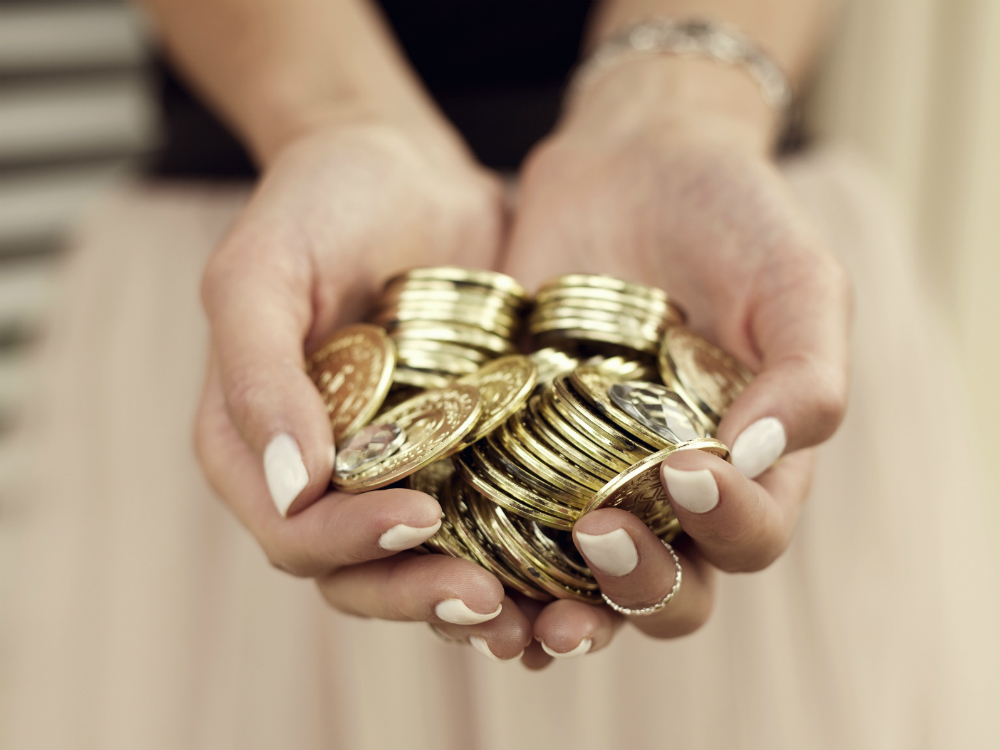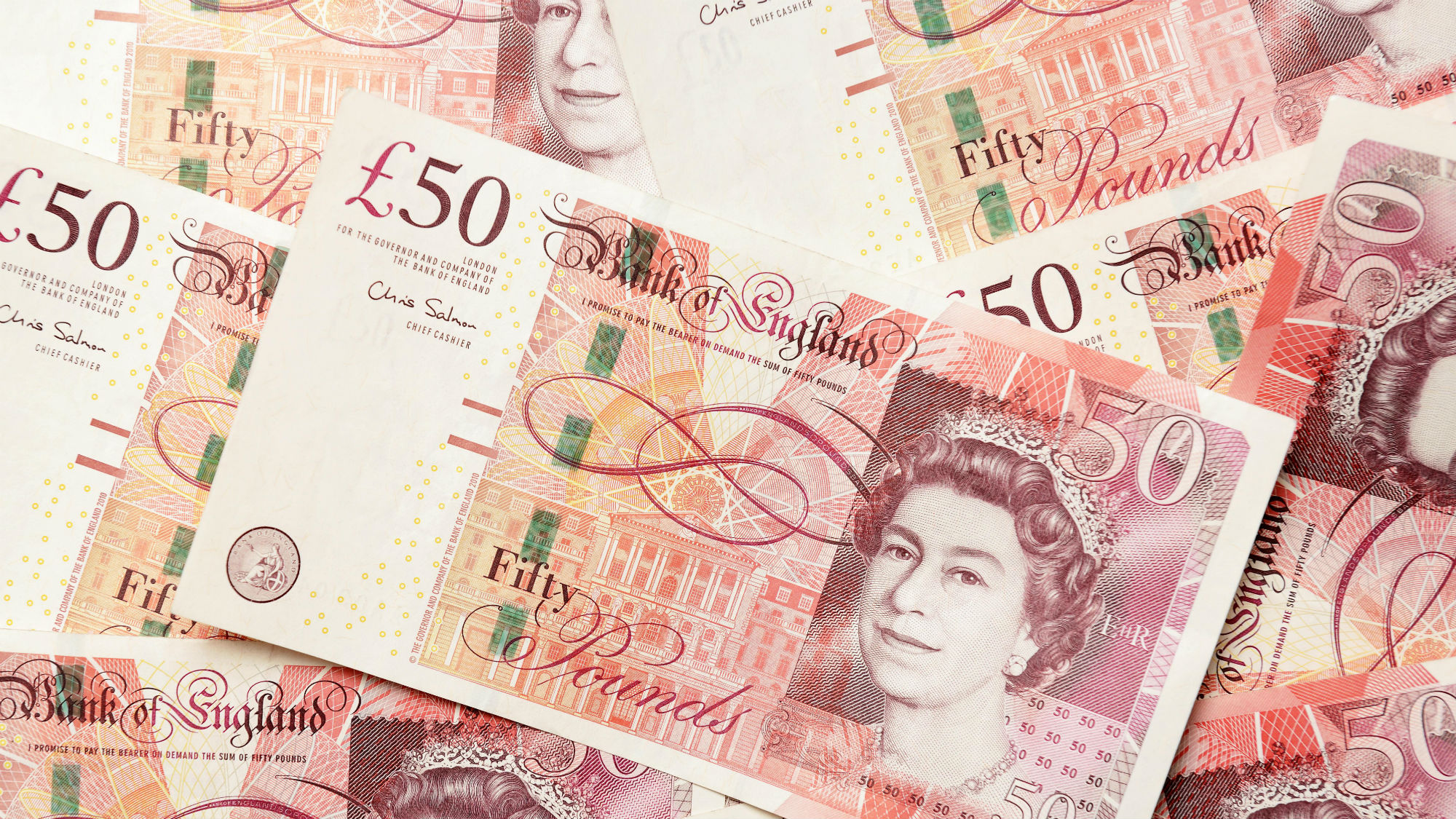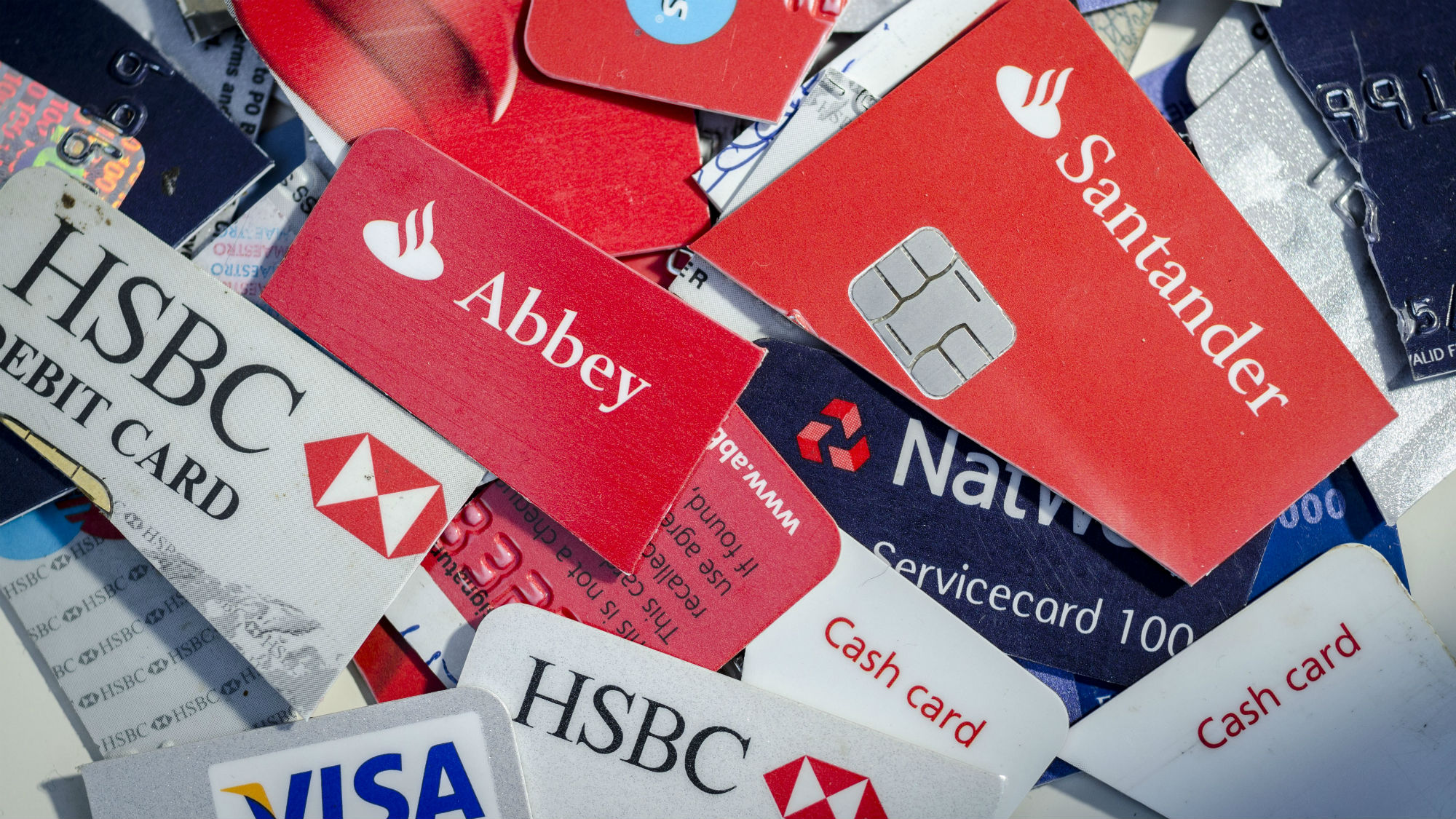Why do women hate talking money?
From secret savings to hidden debt, cash is still a touchy subject in many relationships. Daisy Buchanan reports

From secret savings to hidden debt, cash is still a touchy subject in many relationships. Daisy Buchanan reports
I’m an intelligent woman. I have a degree, I studied economics at school and I’m pretty good at the numbers round on Countdown. So why do I feel sick when I think about checking my bank statement? How did I acquire nearly £7,000 worth of credit-card debt? And why did I hide it from my husband? We don’t have secrets. He knows everything about my exes and when my period is due, but when it comes to money I kept him in the dark. Mostly because I was keeping myself in the dark, too.
Behavioural psychologist Jo Hemmings explains that this is a common predicament for women, and intelligence and career success don’t automatically equate to better management of our cash. ‘In some ways, the more successful we are, the harder it becomes to organise our finances,’ she says. ‘Even when working full-time, women are often expected to take responsibility for emotional labour (shopping lists, birthday cards) and childcare.’ The Office for National Statistics found that, on average, women do 60 per cent more unpaid work than men around the house. Making time to talk to a financial advisor is the thing we’ll always put off until tomorrow, and the bottom line is that our bank account suffers.
Why women feel guilty for spending
Women are also socialised to have an emotional relationship with money. We’ve grown up learning to associate it with feelings of security and love and, conversely, guilt and shame. And advertising aimed at women can be manipulative in the way that it suggests ‘spoiling’ and ‘naughtiness’. For men, on the other hand, money means power and freedom, and spending it is a social sign that they’re confident. And when men out-earn women (in the UK, the pay gap is just over 18 per cent*), it makes it difficult for us to see ourselves in a position of financial control. The pay gap widens significantly once we hit our thirties – so, at a time when we should feel ambitious about building our wealth, market forces cause us to feel less valuable than ever. ‘This makes us insecure and perhaps less confident about making smart decisions around money,’ adds Hemmings.
Videos you may like:
Video you may like:
In July 2015, a government body, The Insolvency Service, released a report showing that, for the first time, women were more likely to file for bankruptcy than men. And in the US, National Debt Relief polled women and men aged 18-24 last year, and 63 per cent of women in that age bracket reported that they had credit-card debt, compared to 36 per cent of men.
My husband has some credit-card debt and he’s been open with me about it. I don’t judge him, and I don’t think his spending patterns are dramatically different from mine. Yet when it comes to my estimation of my own financial management, I feel nothing but shame and embarrassment.

Mary**, 33, explains that she was in a similar situation, and now that she’s paid off her debt, she’s still secretive about her finances. ‘I work in recruitment and can earn quite a high salary, because sometimes the commission is lucrative. When I got my first big bonus, my boyfriend wanted to go on holiday but I told him I’d like to use it to pay off my credit cards. We had an argument about it and, in the heat of the moment, he told me I was an irresponsible spender, because I have debt.’ Mary says the argument made her self-conscious about her finances and has stopped her from being completely honest with her partner. ‘We have a joint account for bills and the mortgage, but I’d never let him see what’s in my savings account – partly because keeping money tucked away means he doesn’t know what I’m spending and can’t judge me. I also feel I’m stockpiling evidence to “prove” that I’m responsible.’
Marie Claire Newsletter
Celebrity news, beauty, fashion advice, and fascinating features, delivered straight to your inbox!
How money affects relationships
Hemmings says Mary’s behaviour is typical. ‘In 2013, Lloyds Bank found that couples in the UK are hiding £2.1 billion from each other in “secret savings”. Because so many women are conditioned to feel guilty about spending, having a secret savings pot is a way to alleviate that guilt and find some security.’ So, it’s OK to keep money secrets from your partner? ‘Within reason,’ says Hemmings. ‘I think it’s healthier to have some of your finances separate and come together to pay the big bills. It’s different if one of you is in extreme debt. That can put so much stress on your mental health that it’s better to work out a way of tackling it together.’
My friend Grace, a 35-year-old novelist, tells me that she was only able to quit her old job and start writing because her husband William financially supported her. ‘I’m aware that I’m in a privileged position. Even when I was working, my partner had always earned significantly more than me, and covered the majority of our big expenses.’ Grace explains that even though she doesn’t have to worry about money, she’s in charge of her finances and sees this as a temporary situation. ‘We each have our own bank accounts. In the past, I’ve run up credit-card bills. I don’t have the cards any more, but when we argue about money it’s triggered by overspending, or my worries about overspending.’ Even though Grace regrets how she’s previously handled her finances, she’s savvy about how money works. ‘If we have to make a big financial decision, we do it together. I often instigate those conversations, such as should we be paying off lump sums of our (low-interest rate) mortgage, or should we be saving that money?’
For most women, honesty is the key word when it comes to getting to grips with our cash. We might not choose to share everything with our partners, but we have to be straight with ourselves. I told myself I was bad with money, when I was simply scared of it. We can’t hide from our finances, so we have to understand them. Intelligent women are informed women, and if we’re frightened of admitting that we don’t have the answers, it’s time to start asking questions.

Are you and your partner cash compatible?
Behavioural psychologist Jo Hemmings shares her tips for bringing financial harmony to your relationship
• It’s worth remembering that, initially, you might be drawn to your financial opposite because they seem different and exciting, but those differences might cause tension later. Also, your partner will likely either copy or react against their parents’ relationship with money, as will you. Remembering that it’s emotional and complex will give you some perspective.
• Many financial advisors would tell you not to bother with savings if you have credit-card debt. But, psychologically, having savings boosts feelings of power, happiness and security. So even if you’re just saving £25 a month, you’ll start to think of yourself as someone who is ‘good’ with money, which will help you individually and with your partner.
• In 2017, it’s unusual to share one bank account with your partner. If you both put money into a joint account for bills and living expenses, you can ensure you’re both contributing equally, while keeping control of the money that goes into your individual account.
*Source: The Institute For Fiscal Studies. **Name has been changed
The leading destination for fashion, beauty, shopping and finger-on-the-pulse views on the latest issues. Marie Claire's travel content helps you delight in discovering new destinations around the globe, offering a unique – and sometimes unchartered – travel experience. From new hotel openings to the destinations tipped to take over our travel calendars, this iconic name has it covered.
-
 Penn Badgley and Blake Lively kept their breakup a secret from the Gossip Girl cast and crew - here's what we know about their former relationship
Penn Badgley and Blake Lively kept their breakup a secret from the Gossip Girl cast and crew - here's what we know about their former relationshipBy Jenny Proudfoot
-
 This iconic rose perfume is a compliment magnet—it makes me feel ‘put together’ after just one spritz
This iconic rose perfume is a compliment magnet—it makes me feel ‘put together’ after just one spritzGrown-up and elegant, yet not at all dated.
By Denise Primbet
-
 Spring has finally sprung - 6 best outdoor workouts that are totally free and boost both body and mind
Spring has finally sprung - 6 best outdoor workouts that are totally free and boost both body and mindSoak in the nature and boost Vitamin D *and* endorphins.
By Anna Bartter